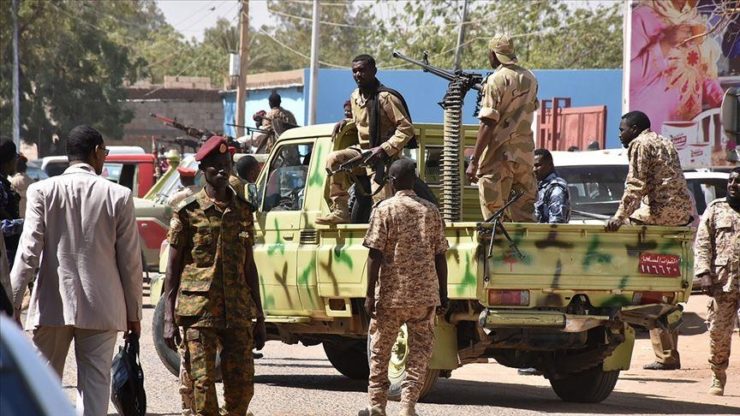
For the past three years, Africa has been under an unprecedented wave of coups. The region has witnessed its 7th coup in Gabon on 30 August 2023. Coups at such a rapid pace in the African region have done great harm to the persistent efforts by the civilian governments in the region to dispel the reputation of Africa as a “coup belt.” Incessant corruption and insecurity in the region are some of the major reasons behind frequent military interventions in the region. Moreover, the failure of civilian institutions also provides the military with an opportunity to topple the civilian government in the African region.
Mali was the first country among the states which observe the overthrow of a democratic government. The country experienced two successive military coups within a period of almost 9 months. In August 2020, the country observed the first coup attempt, which was followed by another successful coup in May 2021. The then President and Prime Minister of Mali were arrested by the military of the country in a May 2021 coup. Colonel Assimi Goita was installed by the military as the transitional president of the country. These coups resulted in the disruption of the democratic process in Mali. However, the junta has promised to conduct elections in 2024 and hand over the government to civilians again. Moreover, in Chad, the assassination of President Idriss Deby was followed by a military takeover of the country. This sparked a huge civil unrest in Chad in 2021.
Guinea also experienced a coup in September of the same year. The former President Alpha Conde was ousted by Colonel Mamady Doumbouya. Allegedly, Conde overthrew the civilian just in the pursuit of extending his term. His unilateral amendment to the constitution extended his term for almost three years. The military establishment had been promising for the last three years that elections would be conducted in the country. However, it seems difficult for these promises to be materialized any time soon.
Similarly, the Sudanese General Abdel Fattah al-Burhane overthrew the transitional government of civilian leaders on 25th October 2021. Ironically, the country had been under the dictatorship of Omar al-Bashir for 30 years from 1989 to 2019. The civilian leadership was supposed to lead the country on the democratic path. However, this transitional civilian government did not survive for more than two years and the country once again fell into the darkness of military dictatorship. More than 5000 people have been killed, since 15th April 2023, as a result of a power struggle between the military leaders of Sudan, General Burhane, and his former deputy Mohamed Hamdane Daglo.
Just like the other African countries, Burkina Faso is no exception. The country had observed two military coups in just a period of 8 months. Lieutenant-Colonel Paul-Henri Sandaogo Damiba was inaugurated as the president of the country by its military, after ousting the civilian President Roch Marc Christian Kabore, for being unable to counter the threat of terrorist groups effectively. However, Lieutenant-Colonel Damiba’s government did not even survive more than 8 months, as he was also dismissed from his presidential position by the military on 30th September. Although the elections are scheduled to be held in July 2024, the chances are grim that the military will hand over the government to civilian leadership.
On 20th July 2023, Mohamed Bazoum, the former President of Niger, was detained by his own Presidential Guard over the charges of poor governance and security deterioration in the country. This event got the attention of different regional and global powers as Niger is perceived as an important regional power in countering insurgencies associated with the threat of Islamic State (IS) and Al-Qaeda (is banned in Russia).
These frequent cases of military coups in Africa disclose deeper sociopolitical fault lines present in the region, which need multidimensional evaluation. Public discontent and dissatisfaction within the prevailing governmental institutions provide an opportunity for the non-democratic forces to dismantle the democratic process. Furthermore, military dictators also use the allegations of corruption and poor governance to justify the disruption of democracy. Democratic governments also lose public confidence due to poor governance, and this provides the military an opportunity to act as the alternative power centers. For instance, people in Gabon were dissatisfied with the outcomes of elections. The government was alleged to have rigged the elections. The military used the allegations of fraudulent elections to justify its coup. Military juntas in Mali and Guinea also used similar justifications.
Almost all the international community and organizations, including the United Nations and the African Union, have condemned and denounced these military coups in Africa. They emphasized the significance of the rule of law and democracy. Analysts around the world view these countries as a threat to regional security and stability, as they worsen existing challenges like economic instability and threats from militant groups and insurgencies. For a peaceful Africa, stability and development are mandatory in these countries. Inclusive democratic governments in the regional countries are the only way for the economic growth of the region.
Abbas Hashemite – is a political observer and research analyst for regional and global geopolitical issues. He is currently working as an independent researcher and journalist, exclusively for “New Eastern Outlook”.